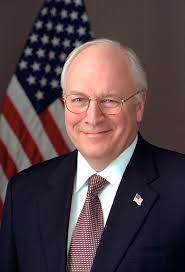Introduction
Dick Cheney, who served as Vice President of the United States from 2001 to 2009 under President George W. Bush, remains a significant figure in American politics. His controversial decisions and strong influence have shaped the political landscape in ways that continue to be relevant today, particularly in discussions surrounding foreign policy, national security, and the role of the executive branch.
Political Career and Influence
Cheney’s political career began in the late 1960s, and he quickly rose through the ranks of the Republican Party. He served in various capacities, including as White House Chief of Staff under President Gerald Ford and as a Congressman from Wyoming. However, it was his vice presidency that firmly placed him in the spotlight.
During his tenure, Cheney was a key architect of the U.S. response to the September 11 attacks. His advocacy for aggressive military action, including the Iraq War, has drawn both severe criticism and support. His use of enhanced interrogation techniques and the promotion of preemptive war have become defining elements of his legacy, influencing public discourse on governmental power and civil liberties.
Ongoing Impact and Legacy
In recent years, Cheney’s influence has resurfaced in various discussions regarding the direction of the Republican Party and issues affecting national security. His daughter, Liz Cheney, has emerged as a prominent figure opposing former President Donald Trump, emphasizing the ongoing relevance of Cheney’s political philosophies in contemporary debates.
Moreover, Cheney’s actions during his vice presidency have sparked ongoing debates around executive power and accountability. The forthcoming release of the documentary ‘The Boys from Baghdad’ and biographical films have reignited public interest in his life and career, further enhancing his complex legacy.
Conclusion
As discussions about the role of former officials in shaping modern American politics continue, Dick Cheney’s stature as a polarizing yet influential politician remains of interest. His decisions, especially those surrounding the Iraq War and national security policies post-9/11, continue to influence current political commentary and debates. Ultimately, Cheney’s legacy serves as a reminder of the lasting impacts that political leaders can have on a nation’s trajectory, often shaping policy in ways that resonate across generations.


